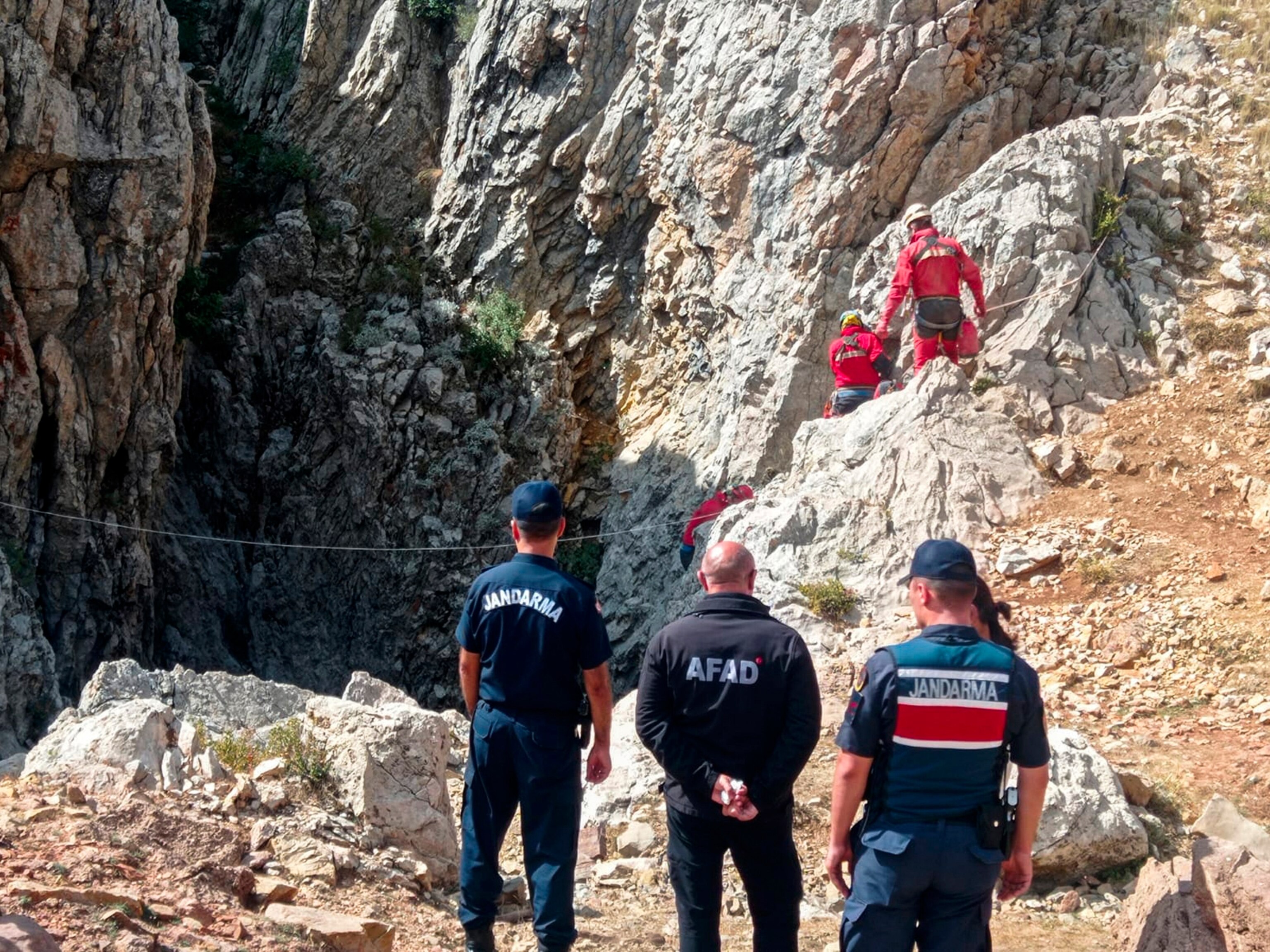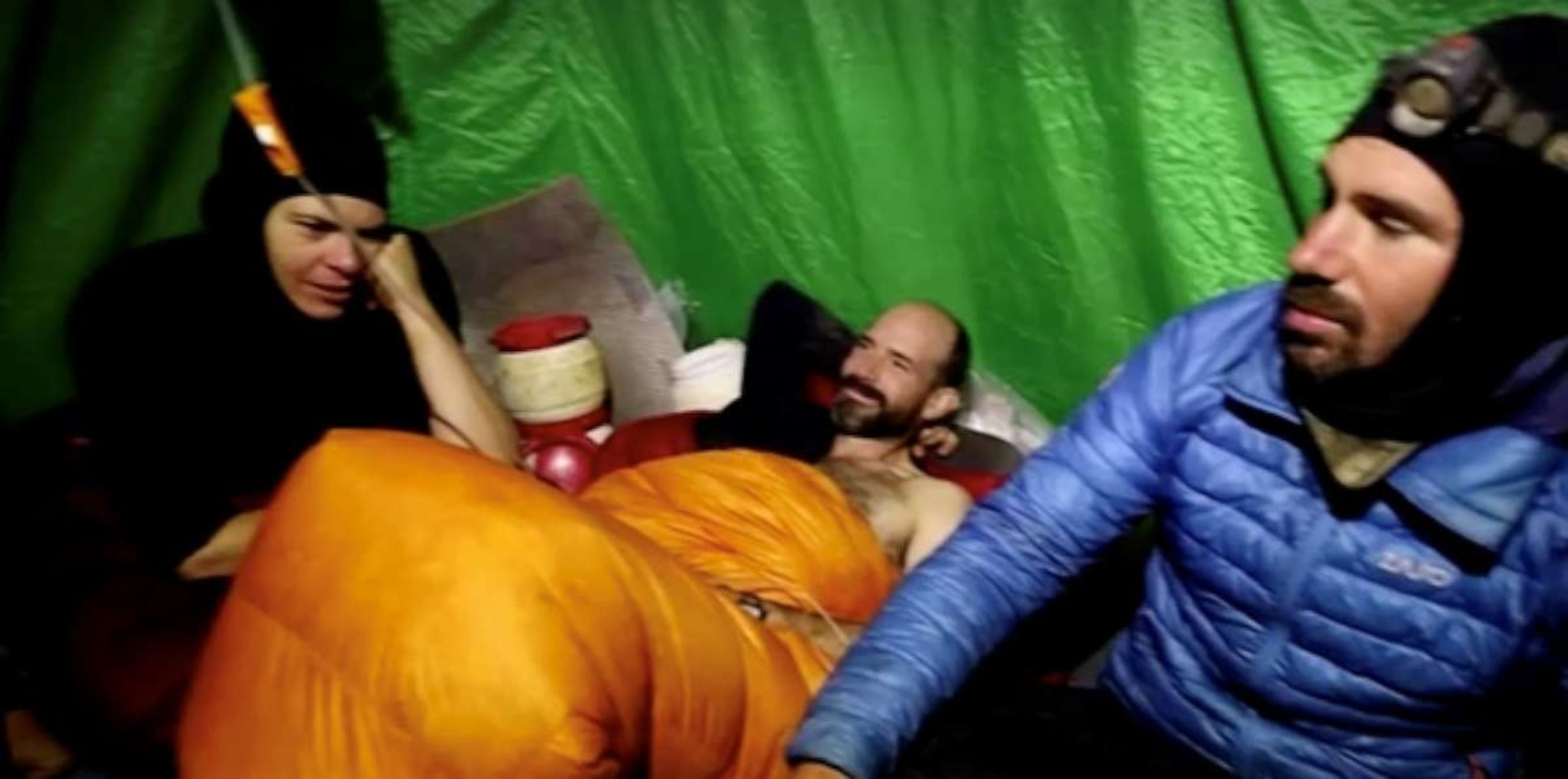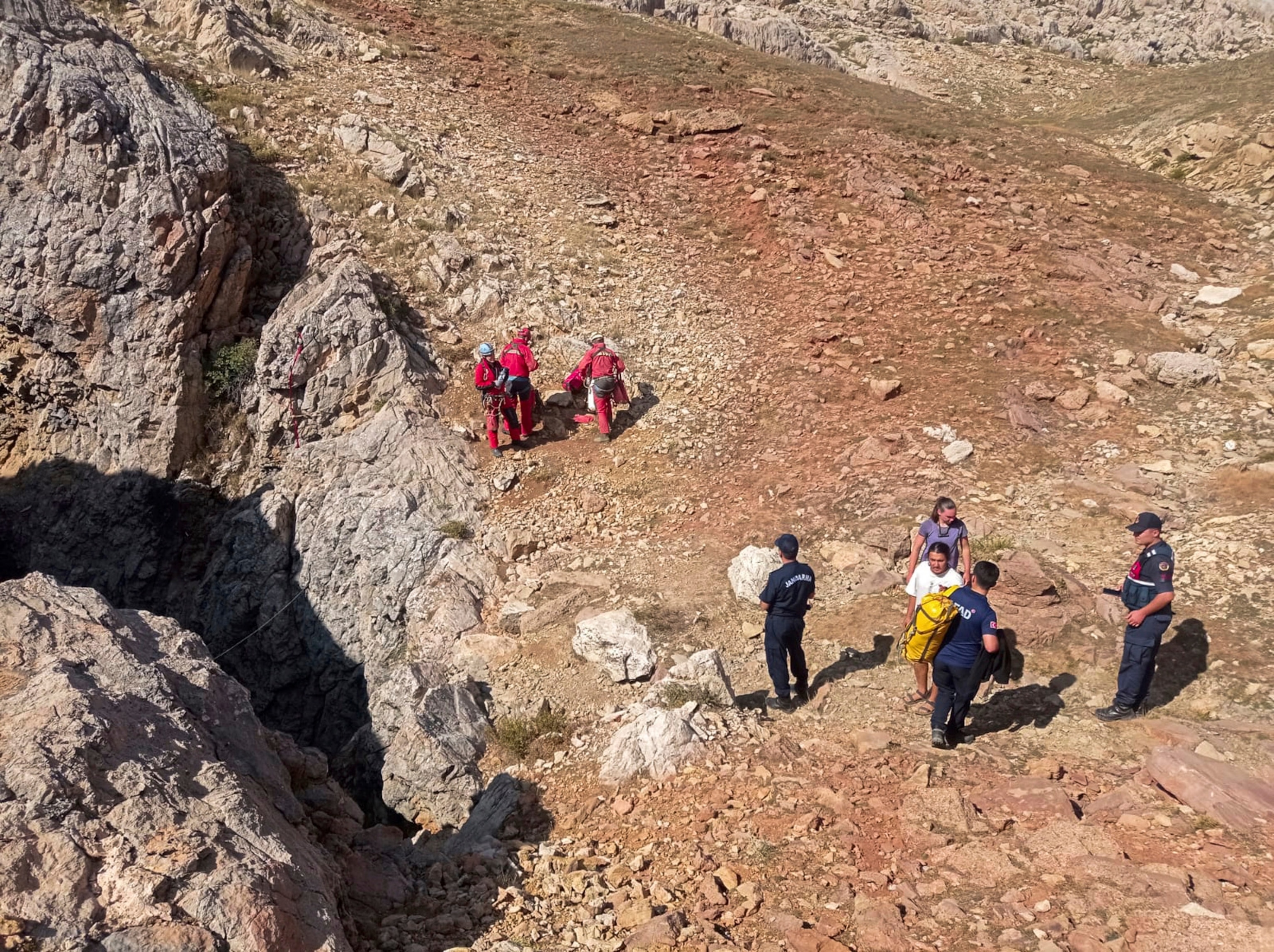Dayslong rescue mission now underway to save American who fell ill exploring deep cave in Turkey
Mark Dickey, 40, has been unable to return to the surface since Aug. 31.
An experienced American caver and researcher who fell ill more than 3,000 feet below the entrance of a cave in Turkey has recovered sufficiently enough to be extracted in an operation that could last three or four days, Turkish officials confirmed on Friday.
Rescuers from across Europe have rushed to the cave for an operation to save Mark Dickey, 40, who became suddenly ill with stomach bleeding during an expedition with a handful of others in the Morca cave in southern Turkey's Taurus Mountains.
"The doctors we sent down were very successful in treating him," Cenk Yildiz, a regional official from Turkey's disaster relief agency, told the IHA news agency. "We are now in a position to evacuate him."
"This is a difficult operation. It would take a (healthy) person 16 hours to come out. This operation will last at least three or four days," Yildiz continued. "Our priority is health. Our aim is to conclude this operation without anyone coming under any danger."

The cave was being prepared for Dickey's safe extraction, including passages being widened and the danger of falling rocks being addressed, according to the Hungarian Cave Rescue Service and other officials.
More than 170 people, including doctors, paramedics and experienced cavers, are involved in the rescue operation.
Local officials confirmed to ABC News that a local rescue team was taking over the operation and would hold a press conference on Monday.

Dickey fell ill on Aug. 31 while on an exploration of the Morca cave and has been unable to return to the surface, according to the volunteer group New Jersey Initial Response Team. Dickey is the chief of the group, which specializes in cave and mine rescue, as well as an instructor for the National Cave Rescue Commission.
The expert caver was helping lead an international caving expedition when he started suffering intestinal problems "that rapidly progressed into life-threatening bleeding and vomiting," the New Jersey Initial Response Team said in a statement.
The group said Dickey had been bleeding and losing fluid from his stomach, but he has now stopped vomiting and has eaten for the first time in days. It was not clear what caused the medical issue.
Doctors were expected to decide whether he will need to leave the cave on a stretcher or if he can leave under his own power. The New Jersey Initial Response Team said the rescue will require many teams and constant medical care inside the cave, which is also quite cold.

The European Cave Rescue Association said in a statement on Friday that the cave had been divided into seven sections, with various rescue teams taking responsibility for each of the levels down the cave. Communication lines inside the cave had also been improved, it said.
"The doctors are working to further improve the patient's health so that the difficult transport to the surface can begin soon without further complications," the association said.

In a video statement taped underground and released by The Associated Press on Thursday, Dickey thanked the caving community. He said he was very close to death and the medical supplies saved his life, though he still has internal injuries and pain, making it difficult to get out.
"As you can see, I'm up, I'm alert, I'm talking. But I'm not healed on the inside yet so I'm going to need a lot of help to get out of here," he said.
Dickey said caving shows how well the international community can work together.
"We take care of our own. And it's really special to be taken care of," he said.

In eerily prescient comments, Dickey talked about how challenging it is to rescue an injured caver in these types of remote, deep caves, in a recent unpublished documentary by Rob Spangler.
"The number of rescue disciplines that are involved in cave rescue is astounding, the amount of challenges that you have to overcome to get someone out of the cave when they're injured," Dickey said in the footage, which was filmed in November 2022 at the Cueva Gavilan cave in Oaxaca, Mexico. "You don't realize how difficult it is until you really get involved."

Morca is one of the deepest caves in Turkey. Dickey is part of an expedition team hoping to collect samples from and map the cave beyond 3,400 feet, according to the team's website.
In 2014, more than 700 specialists rescued German spelunker Johann Westhauser, who was trapped for 12 days in one of Europe's deepest cave systems.
ABC News' Helena Skinner and Kerem Inal contributed to this report.




